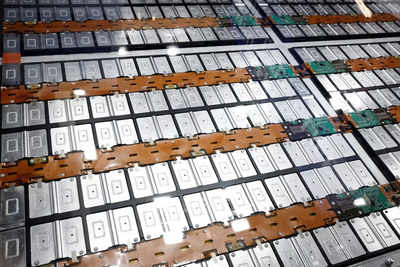NEW DELHI: Finance minister Nirmala Sitharaman, while announcing the
Union Budget
on Saturday announced a proposal to extend duty exemptions on capital goods that are used in the manufacturing of lithium-ion batteries. This move aimed to boost domestic production in this major sector which is essential for electric vehicles and mobile phones.
The FM said, “To the list of exempted capital goods, I propose to add 35 additional items for EV battery manufacturing and 28 for mobile phone battery manufacturing.”
This move received positive reaction from industry experts who highlighted its potential to reduce costs and accelerate India’s EV transition.
Saket Mehra, partner at Grant Thornton Bharat and auto & EV industry leader, said that the reduction in customs duty on lithium would significantly lower input costs, which would result in propelling the country’s growing EV sector.
Nirmal K Minda, chairman and managing director of Uno Minda, also noted that the government’s focus on localising EV battery production and components would enhance manufacturing capacities and reduce reliance on imports.
He added that efforts to localise key EV parts like batteries, motors, and controllers would make electric vehicles more affordable for consumers while strengthening India’s EV ecosystem.
Pritesh Mahajan, co-founder and CEO of Revamp Moto, also appreciated the government’s decision to fully exempt Basic Customs Duty (BCD) on cobalt powder, lithium-ion battery waste, scrap, and 12 other critical minerals.
He emphasised that this would not only lower production costs but also encourage companies to scale up operations, drive technological innovation, and create high-value jobs in the sector.
With these policy measures, India is taking a step forewards towards becoming a global hub for
lithium-ion battery manufacturing
, reducing dependence on imports and fostering sustainable growth in the EV and electronics industries.


